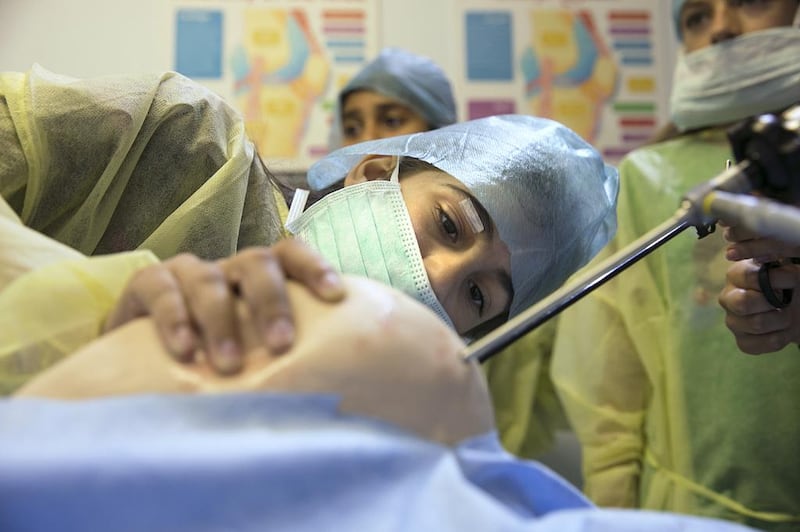ABU DHABI // This year’s Abu Dhabi Science Festival kicks off on Thursday at a new location in the capital.
The fifth edition of the event has moved from the Corniche to Mushrif Central Park, where it will feature 50 workshops and exhibits that aim to encourage children to take interest in science, technology, engineering and maths.
Designed with an Emirati audience in mind, there will also be a mock-up village featuring cultural activities to teach children about their country’s heritage.
For the first time, a workshop will be based on the UAE Space Agency’s plans to send a probe to Mars by 2021. It will give a glimpse into what life could be like inside a Mars station.
Children visiting the festival will learn how electricity works with a simple circuit to light and bulb.
They can also learn how to make their own camera.
Children up to age five can enjoy creating bubble shapes at the Bubbles Workshop and Exhibition, while others can role-play as surgeons in a workshop allowing them to perform life-like procedures and medical treatment.
This year, children will be able to work in construction zones and have a go at archaeology by digging up dinosaur bones.
“We are delighted to be returning as programming partner for the festival,” said Simon Gage, director of the Edinburgh Science Festival.
“We look forward to inspiring the many tens of thousands of young people, parents and teachers who will visit this world-beating science festival.
“There has never been a greater need to bring science, technology, engineering and maths to young people and the wider UAE culture.”
This year’s edition is being put together with the help of 700 students from universities and they will serve as “science communicators”.
Having completed a training programme created and administered by Edinburgh International Science Festival, the students’ role is to engage, excite and inspire visitors.
“We look forward to working with the hundreds of university students to put on this festival, and with them, inspire the many tens of thousands of young people, parents and teachers that will visit this world-beating science festival,” said Dr Gage.
Dr Linda Abraham Silver, associate director of content at the Abu Dhabi Technology Development Committee, one of the organising groups behind the festival, said organisers were thrilled that 40 per cent of the festival’s content was locally produced.
“Building a robust Informal Science Education base here in Abu Dhabi is important to ensure that the science presented is both relevant to the community and aligned to the goals of the emirate going forward,” she said.
With more than 150,000 visiting last year’s festival, Dr Silver said she expected to see the same at the exhibit’s new location.
“Mushrif Central Park was developed to be a destination for families and a place of learning and exploration. From a mission delivery standpoint, the [park] and the programme are deeply aligned, and that always helps in ensuring success,” she said.
The festival runs until November 22. See www.abudhabisciencefestival.ae.
aalkhoori@thenational.ae
tsubaihi@thenational.ae






